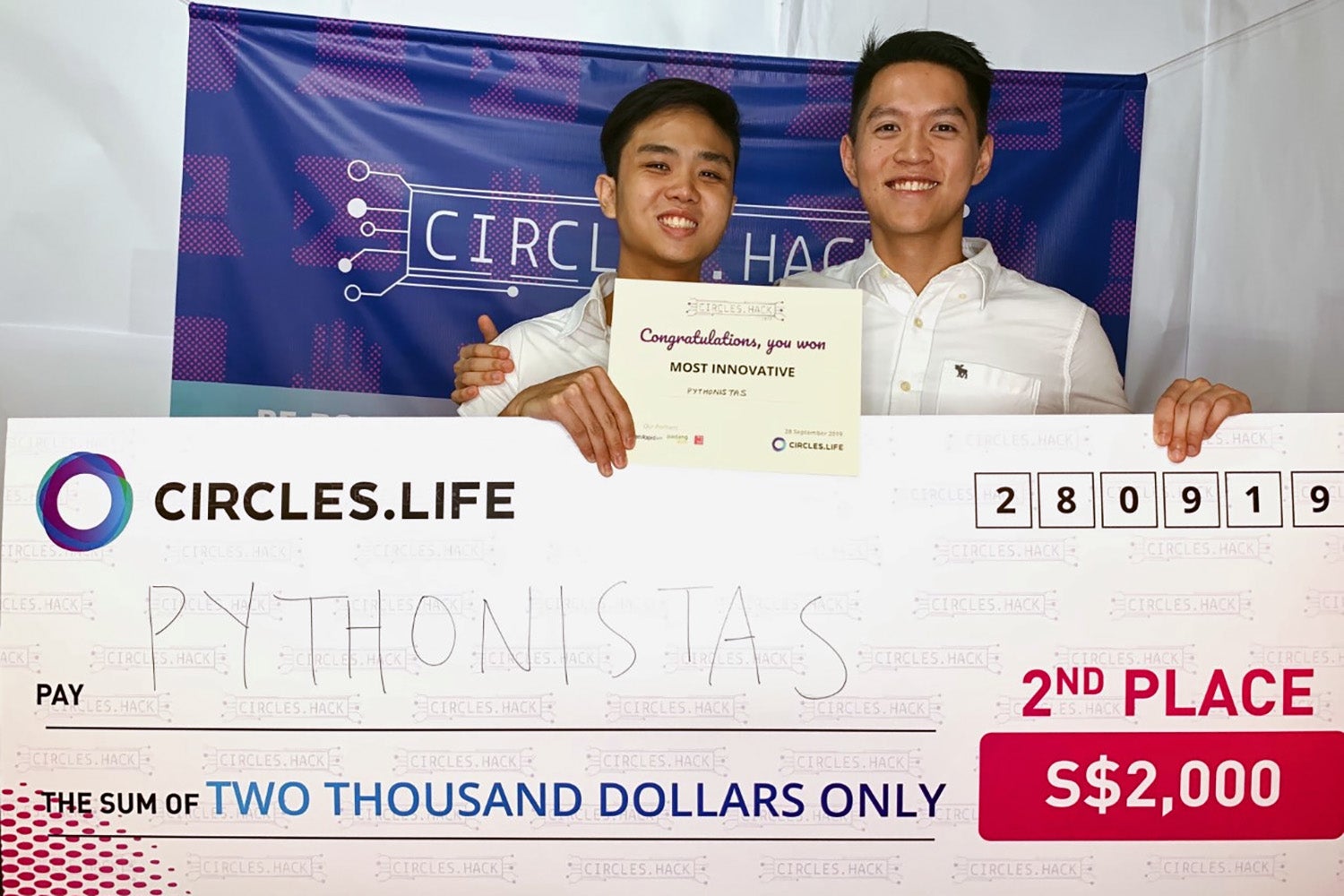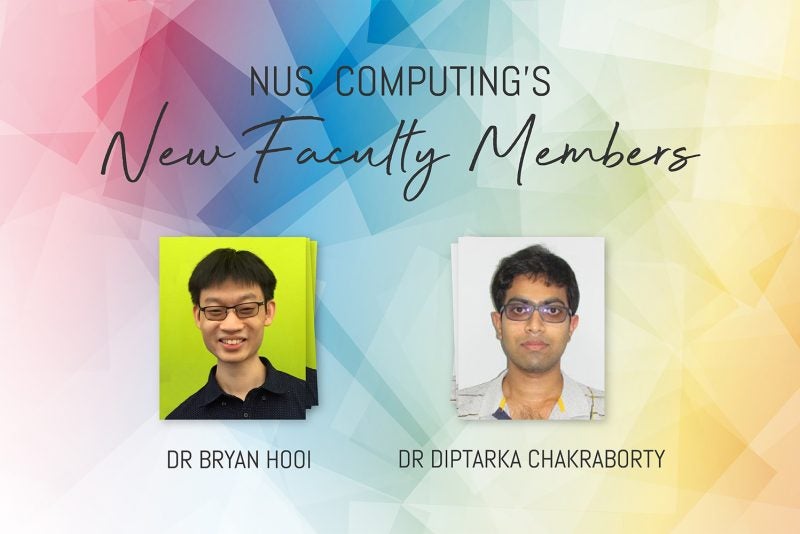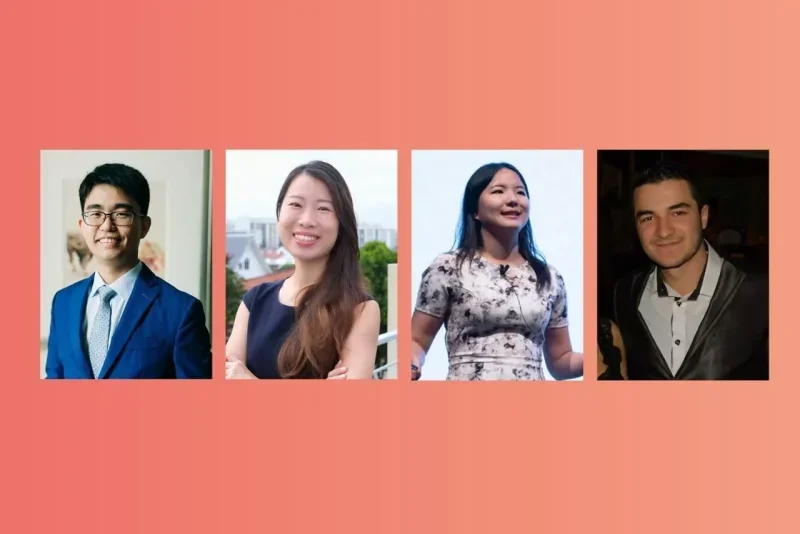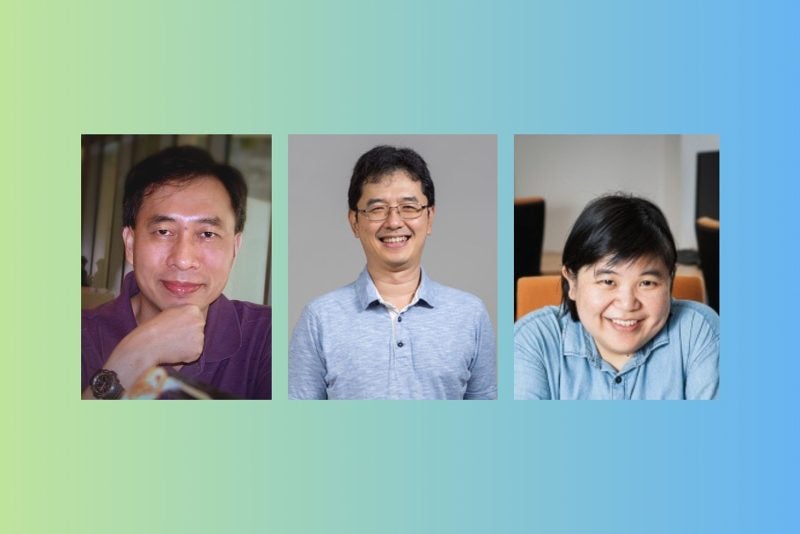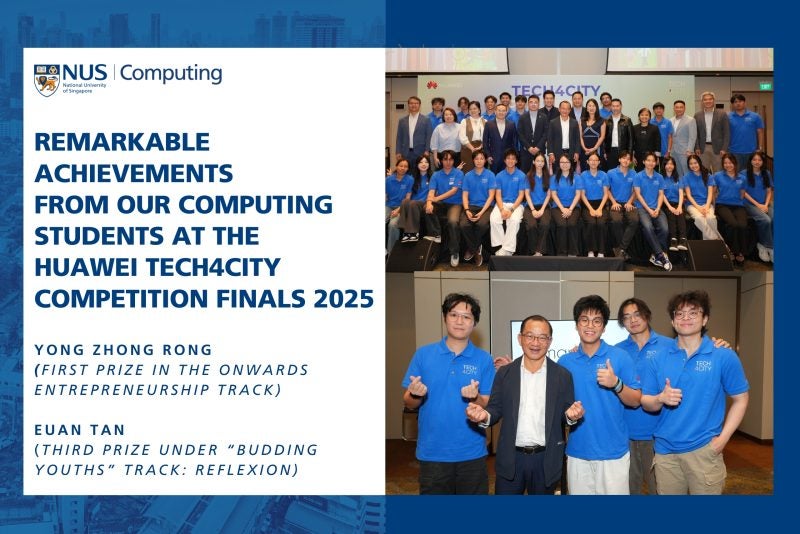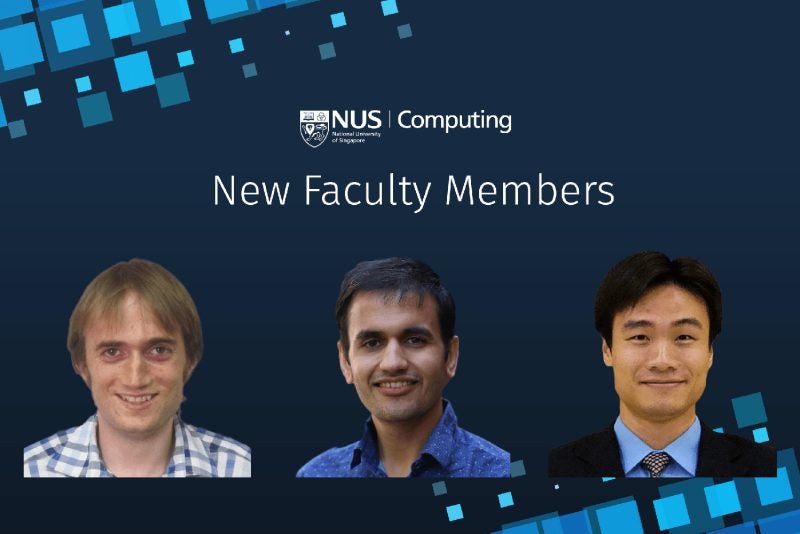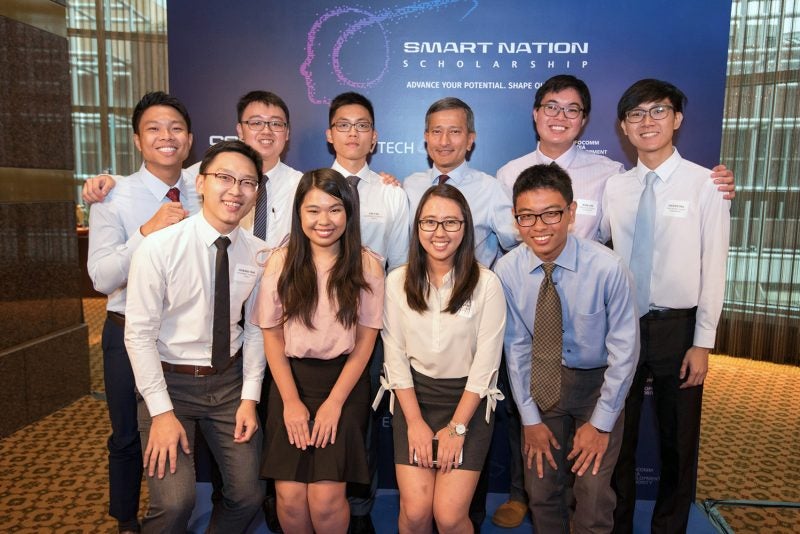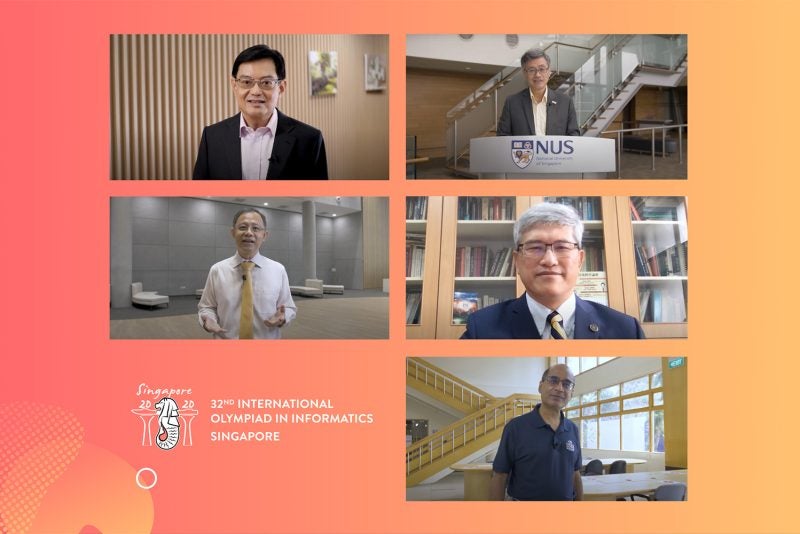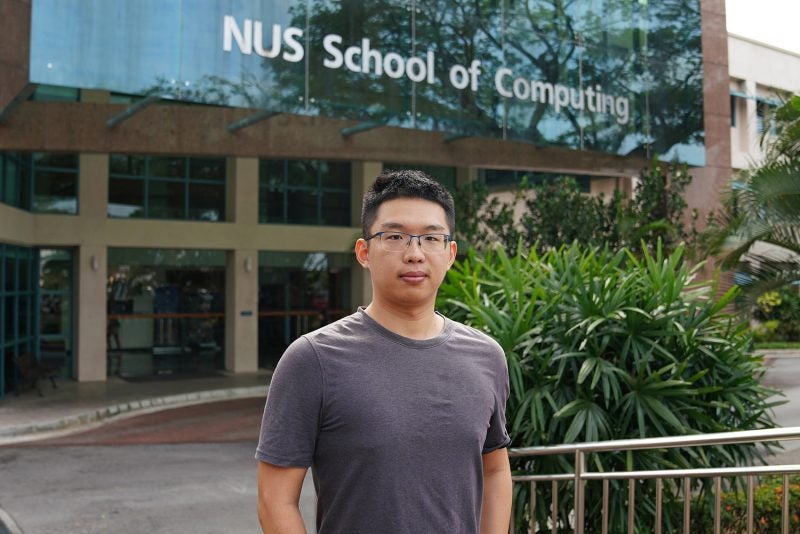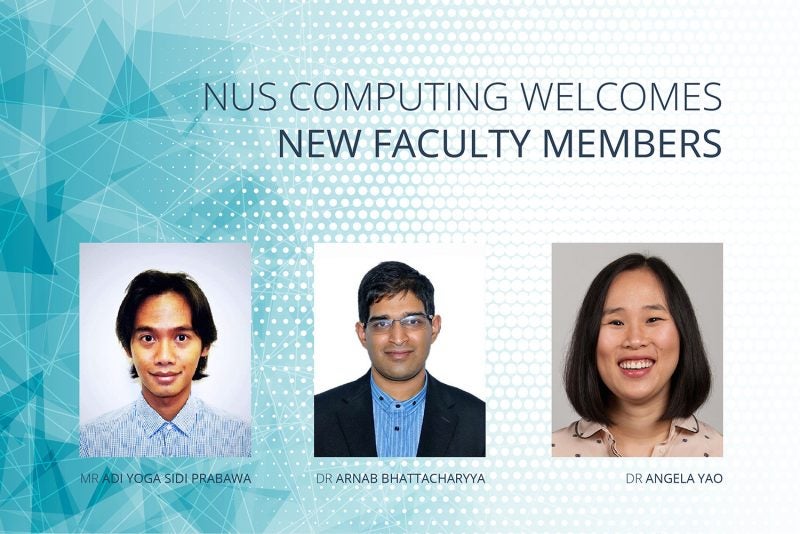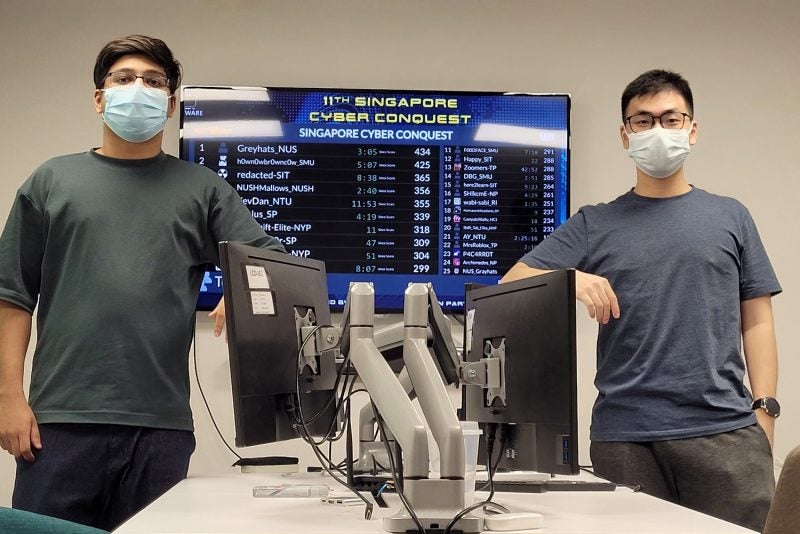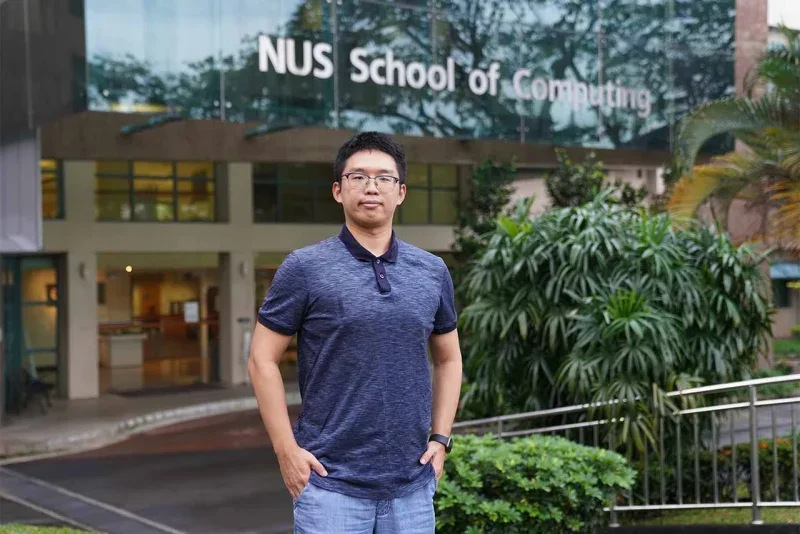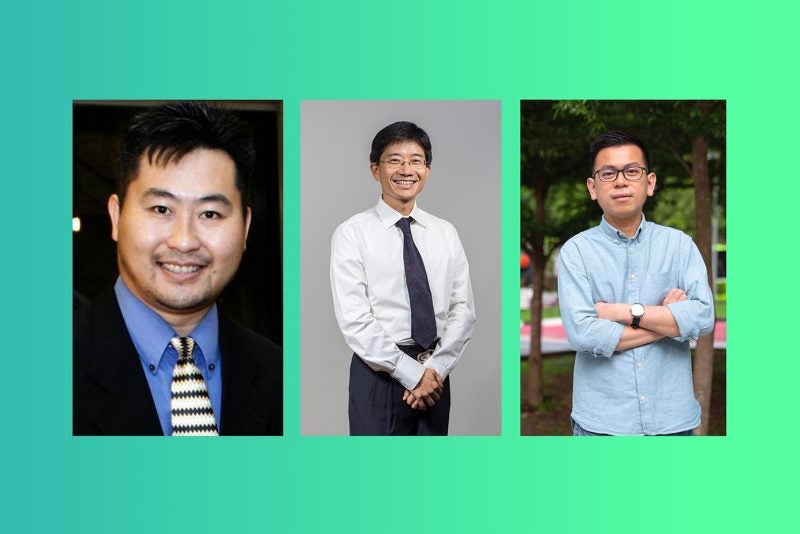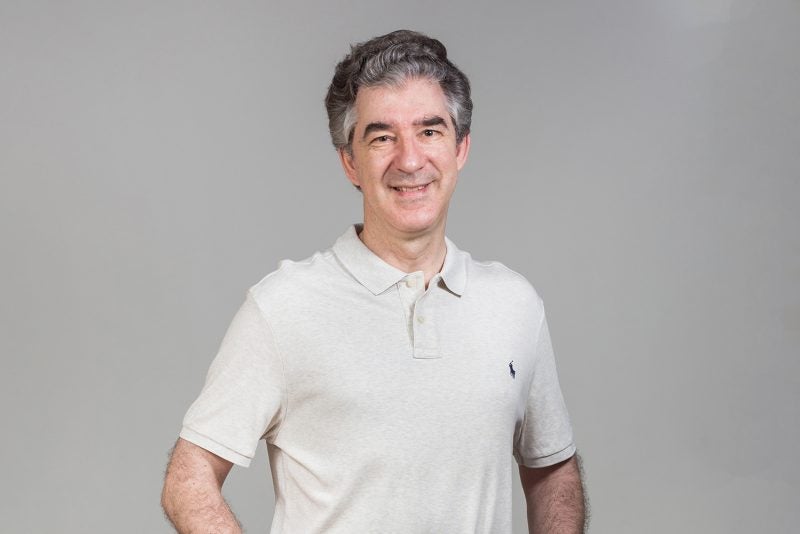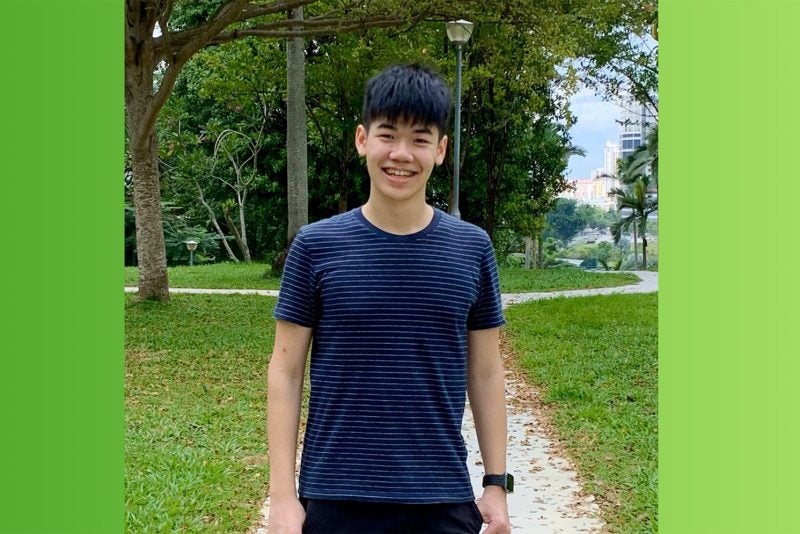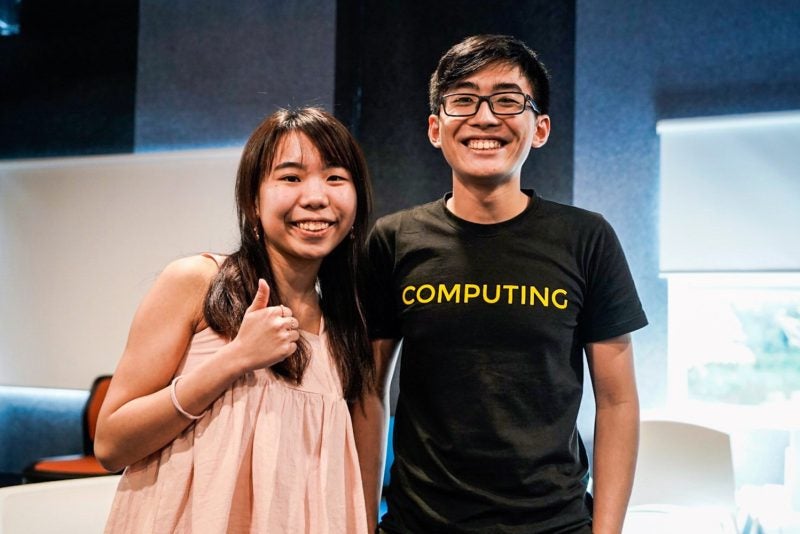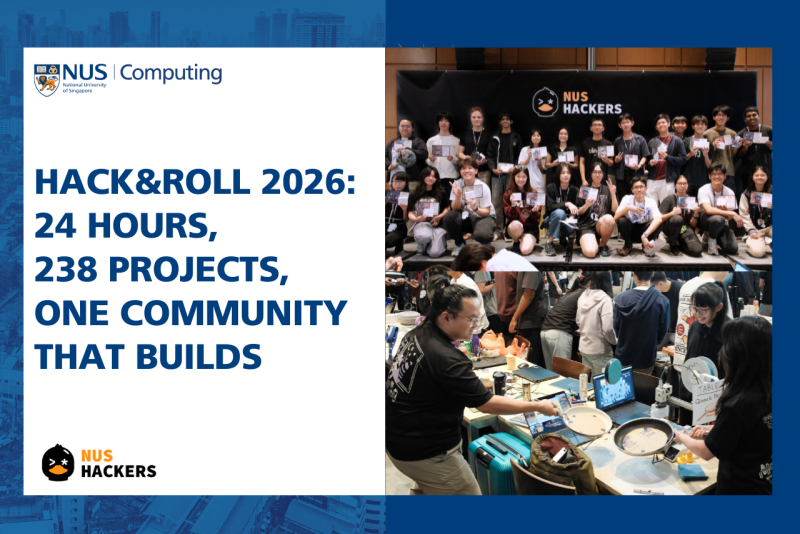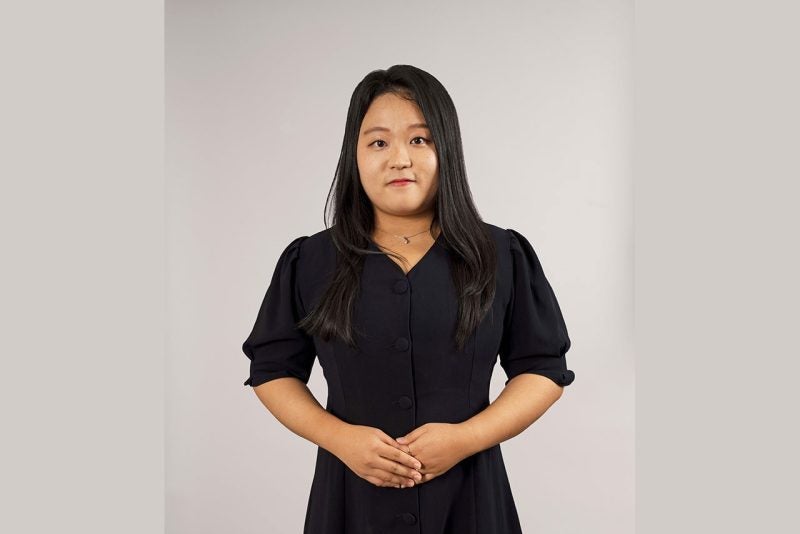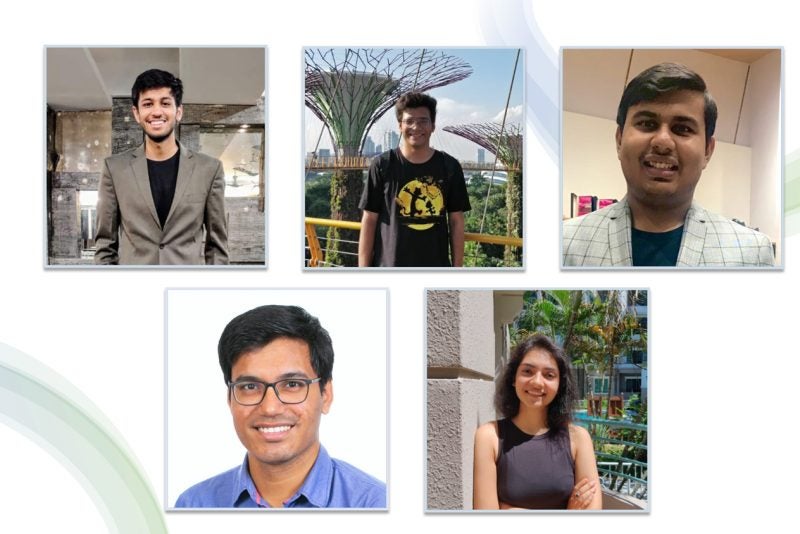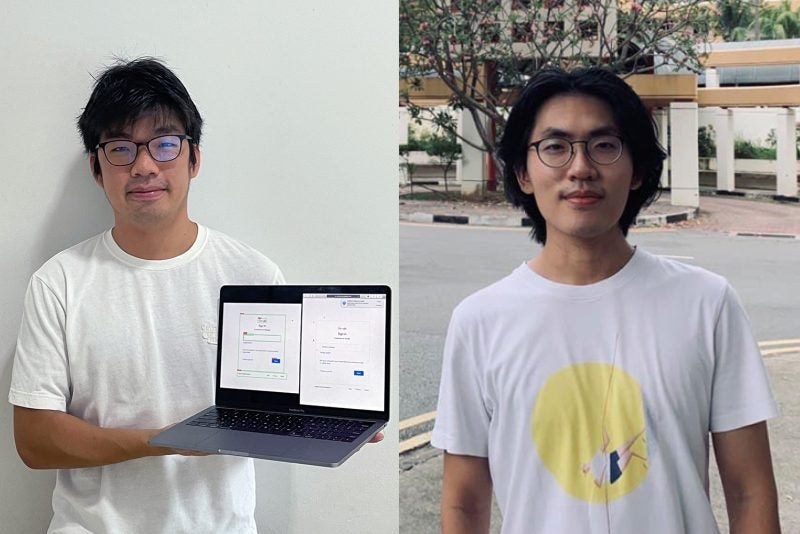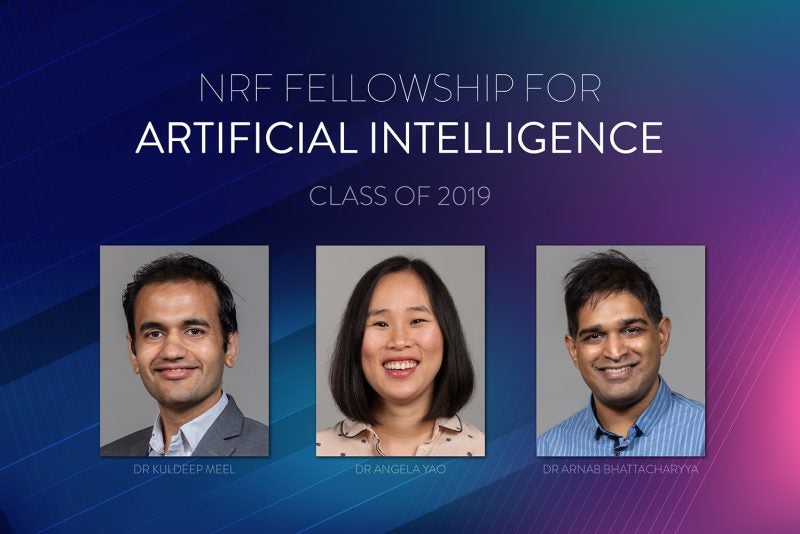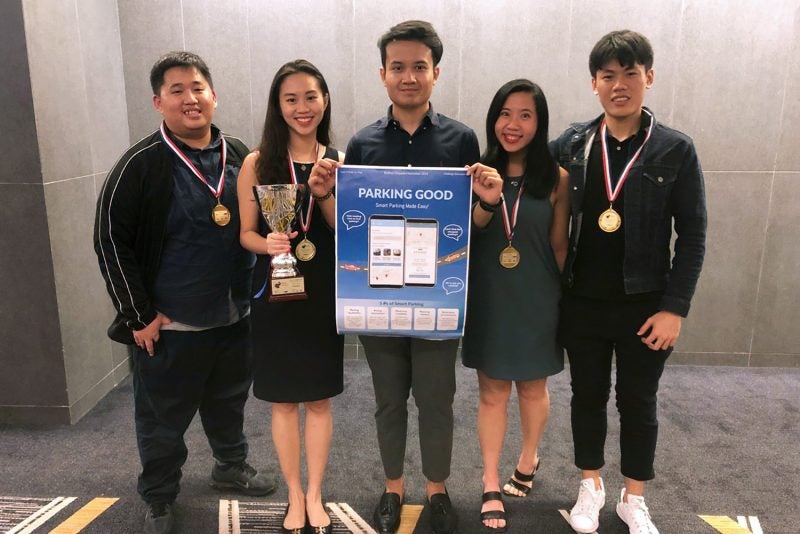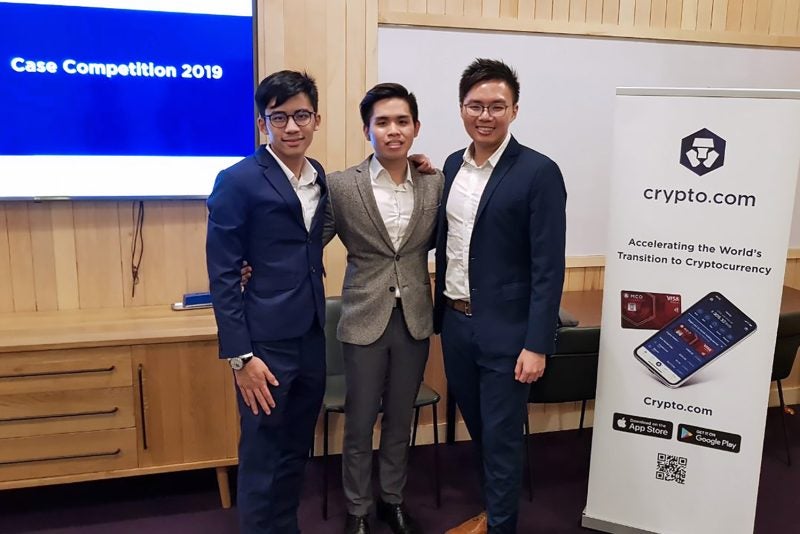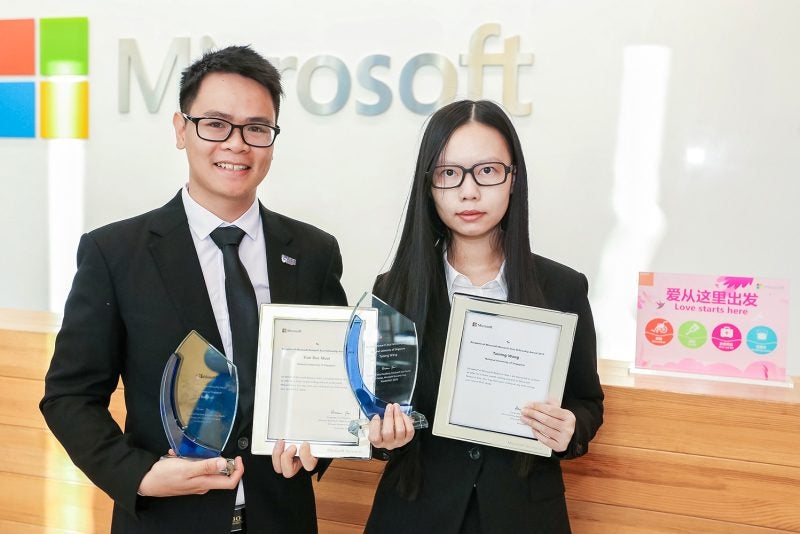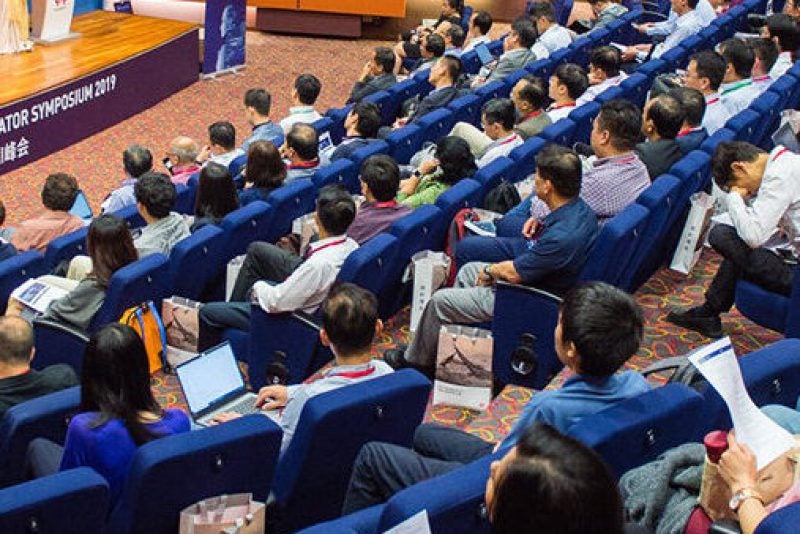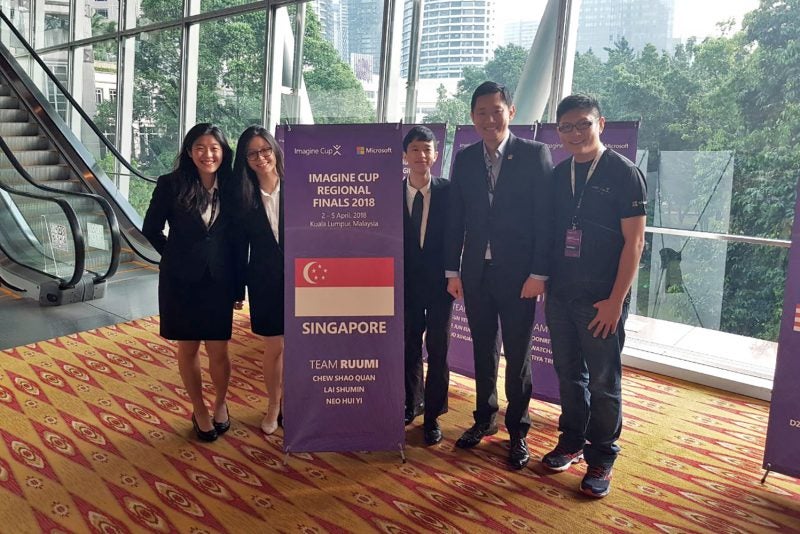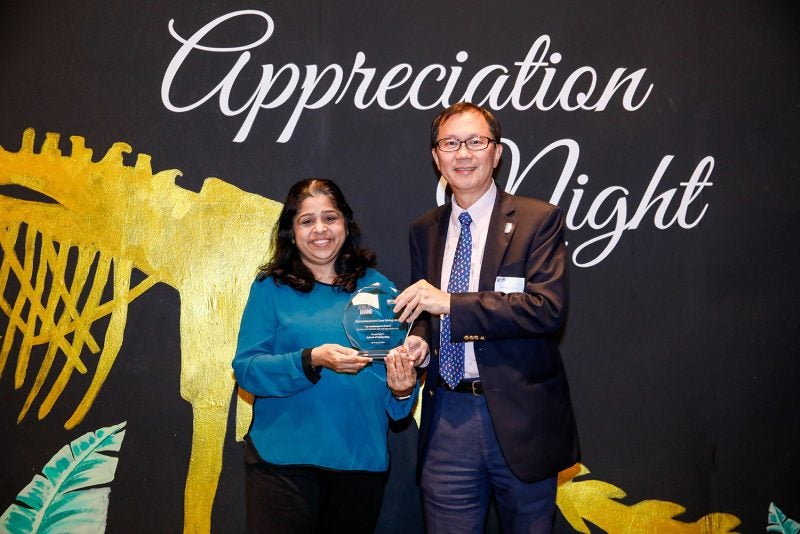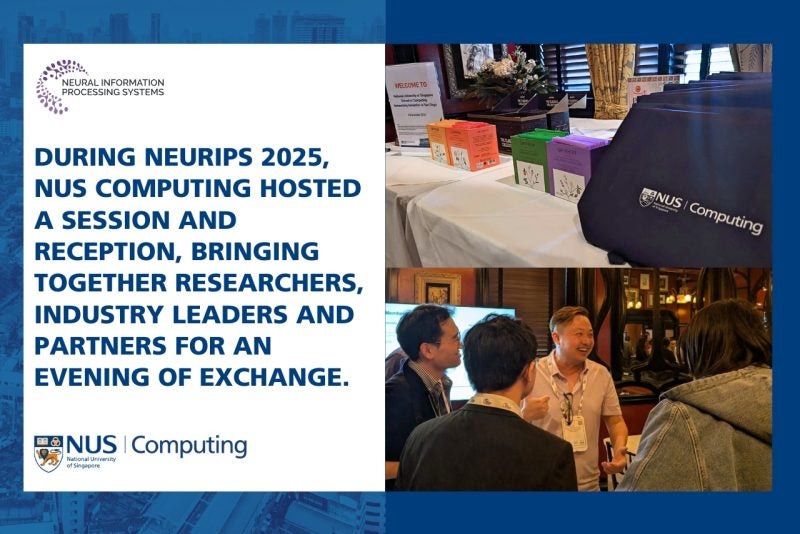4 October 2019 – Two NUS Computing teams, a pair of Business Analytics students and a group of five second-year students, won a total of four awards among themselves at the Circles.Hack 2019 competition on 21 September this year.
Business Analytics students Jason Yip (Year 3) and Ernest Chng (Year 2) placed second in the hackathon, while second year Computer Science students Bahety Arjavi, Caleb Goh, Chen Dalis, Johanna, and second year Information Systems student Long Luqian, won the Diversity & Inclusion in Tech Award. Both teams also received the Most Innovative Award at the competition.
Circles.Hack 2019 is an eight-day hackathon organised by mobile virtual network operator Circles.Life. 13 teams competed in the hackathon where they were challenged to use data to design creative technological solutions for Circles.Life. Teams could choose to take up one of three challenges – they could either create a socio-economic status (SES) prediction system, a personal finance management platform, or a personalised recommendation system for customers.
Jason and Ernest chose to take on SES prediction challenge and the pair developed an SES index tool to determine a customer’s level of income based on his/her home location. “We chose to tackle the SES challenge as we found it really interesting to tackle a data challenge with only two sets of information – the User IDs of Circles.Life’s customers and their postal codes,” said Jason. “I thought this freedom was great because the judges would get to see really unique solutions at the end of the day.”
Instead of relying solely on the given data, the team gathered over twenty meaningful features from public data sources and generated four sets of additional data – customer spending, housing, education and employment. The pair was also able to use additional data released by the organisers to refine their system. As a result, Jason and Ernest were able to implement a feature that lets Circles.Life differentiate between customers who lived in the same vicinity based on their known spending habits with Circles.Life.
“Our solution had three main benefits: it can help Circles.Life create a comprehensive profile of their customers, help the company price different products or subscriptions based on these profiles, and enable the company’s partners to push targeted ads and products through their network,” Jason added.
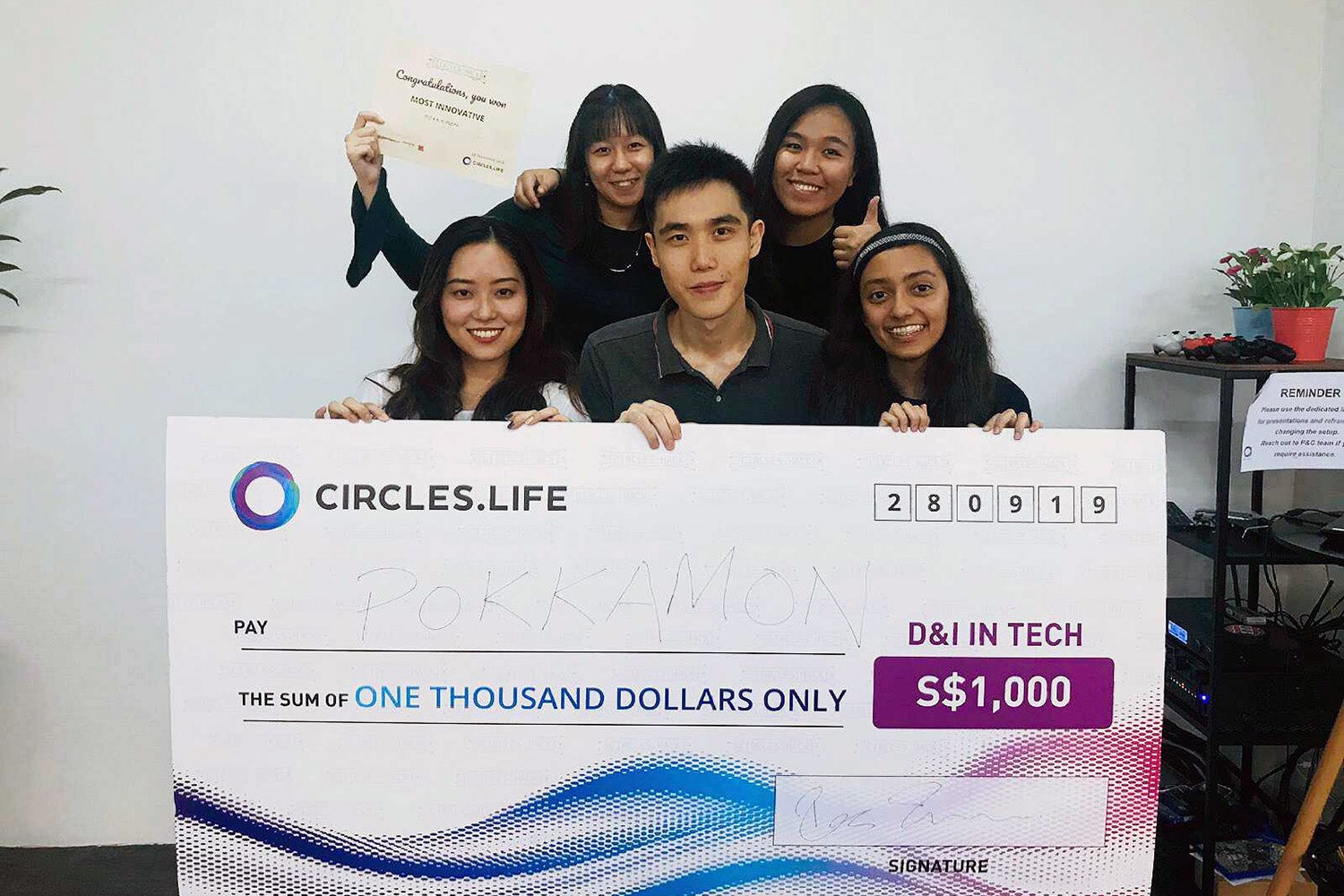
The other NUS Computing team, consisting of Johanna, Luqian, Caleb, Dalis and Bahety, chose to tackle a different challenge – developing a personalised recommendation engine to convert players of the Circles app’s polling game into customers of app’s Discover Movies and Discover Events services.
The team used given data from Circles.Life’ daily polling games to create a recommendation engine. They used a collaborative filtering technique to cluster similar users together and a content-based filtering system to recommend specific items to users in the same cluster. The team also conducted a semantic analysis of listed events and movies in the Circles.Life app to see how closely the items matched with users’ known tastes and preferences.
“We were the only team in the finals that chose this challenge as this was an especially difficult challenge to take on,” said Johanna, on behalf of her team. “We were only given quantitative data which made it difficult to extract meaningful qualitative data. Even the judges commented that they were still struggling to find a way to work with the dataset. Our solution was unique as our idea of using a clustering-based system was something novel.”
The team, made up of members from different nationalities, believed that their diversity gave them an edge over the rest. “Each of us had a different perspective and approach to the problem and these multiple viewpoints. We used these viewpoints to brainstorm how different customers would respond to the recommendation system,” Johanna added.
“It was an honour to receive two awards at this hackathon.. Winning the awards was definitely beyond our expectations. There were many amazing and creative ideas out there but we are happy that the judges recognised our out-of-the-box and comprehensive solution. Our win would not have been possible without the help of our NUS Computing seniors whose advice set us on the correct path to develop our idea,” said Johanna.

